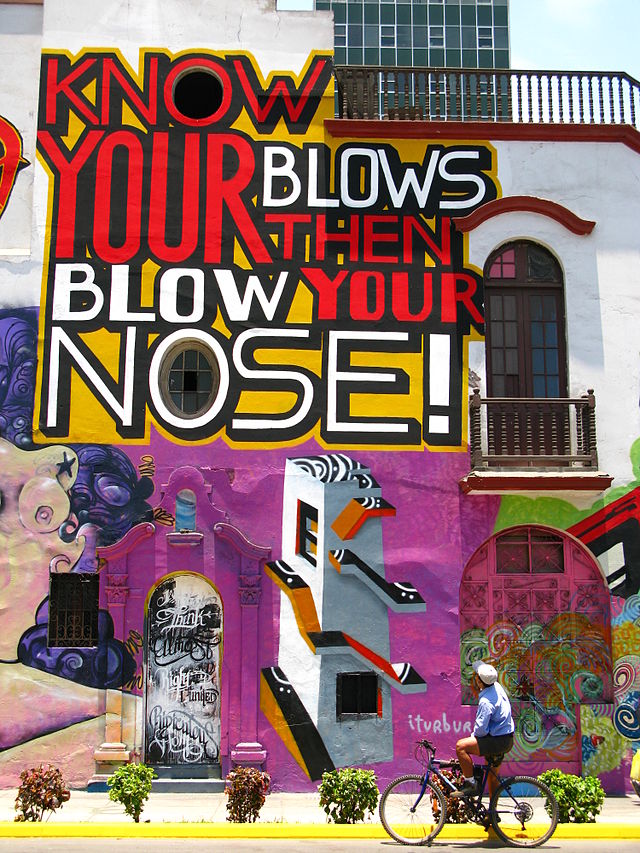Loading AI tools
Form of wit in which words used become the main subject of the work From Wikipedia, the free encyclopedia
Word play or wordplay[1] (also: play-on-words) is a literary technique and a form of wit in which words used become the main subject of the work, primarily for the purpose of intended effect or amusement. Examples of word play include puns, phonetic mix-ups such as spoonerisms, obscure words and meanings, clever rhetorical excursions, oddly formed sentences, double entendres, and telling character names (such as in the play The Importance of Being Earnest, Ernest being a given name that sounds exactly like the adjective earnest).

Word play is quite common in oral cultures as a method of reinforcing meaning. Examples of text-based (orthographic) word play are found in languages with or without alphabet-based scripts, such as homophonic puns in Mandarin Chinese.
This section needs expansion. You can help by adding to it. (January 2010) |


Most writers engage in word play to some extent, but certain writers are particularly committed to, or adept at, word play as a major feature of their work . Shakespeare's "quibbles" have made him a noted punster. Similarly, P.G. Wodehouse was hailed by The Times as a "comic genius recognized in his lifetime as a classic and an old master of farce" for his own acclaimed wordplay.[citation needed] James Joyce, author of Ulysses, is another noted word-player. For example, in his Finnegans Wake Joyce's phrase "they were yung and easily freudened" clearly implies the more conventional "they were young and easily frightened"; however, the former also makes an apt pun on the names of two famous psychoanalysts, Jung and Freud.
An epitaph, probably unassigned to any grave, demonstrates use in rhyme.
Crossword puzzles often employ wordplay to challenge solvers. Cryptic crosswords especially are based on elaborate systems of wordplay.
An example of modern word play can be found on line 103 of Childish Gambino's "III. Life: The Biggest Troll".
H2O plus my D, that's my hood, I'm living in it
Rapper Milo uses a play on words in his verse on "True Nen"[6]
A farmer says, "I got soaked for nothing, stood out there in the rain bang in the middle of my land, a complete waste of time. I'll like to kill the swine who said you can win the Nobel Prize for being out standing in your field!".
The Mario Party series is known for its mini-game titles that usually are puns and various plays on words; for example: "Shock, Drop, and Roll", "Gimme a Brake", and "Right Oar Left". These mini-game titles are also different depending on regional differences and take into account that specific region's culture.
Word play can enter common usage as neologisms.
Word play is closely related to word games; that is, games in which the point is manipulating words. See also language game for a linguist's variation.
Word play can cause problems for translators: e.g., in the book Winnie-the-Pooh a character mistakes the word "issue" for the noise of a sneeze, a resemblance which disappears when the word "issue" is translated into another language.
Seamless Wikipedia browsing. On steroids.
Every time you click a link to Wikipedia, Wiktionary or Wikiquote in your browser's search results, it will show the modern Wikiwand interface.
Wikiwand extension is a five stars, simple, with minimum permission required to keep your browsing private, safe and transparent.